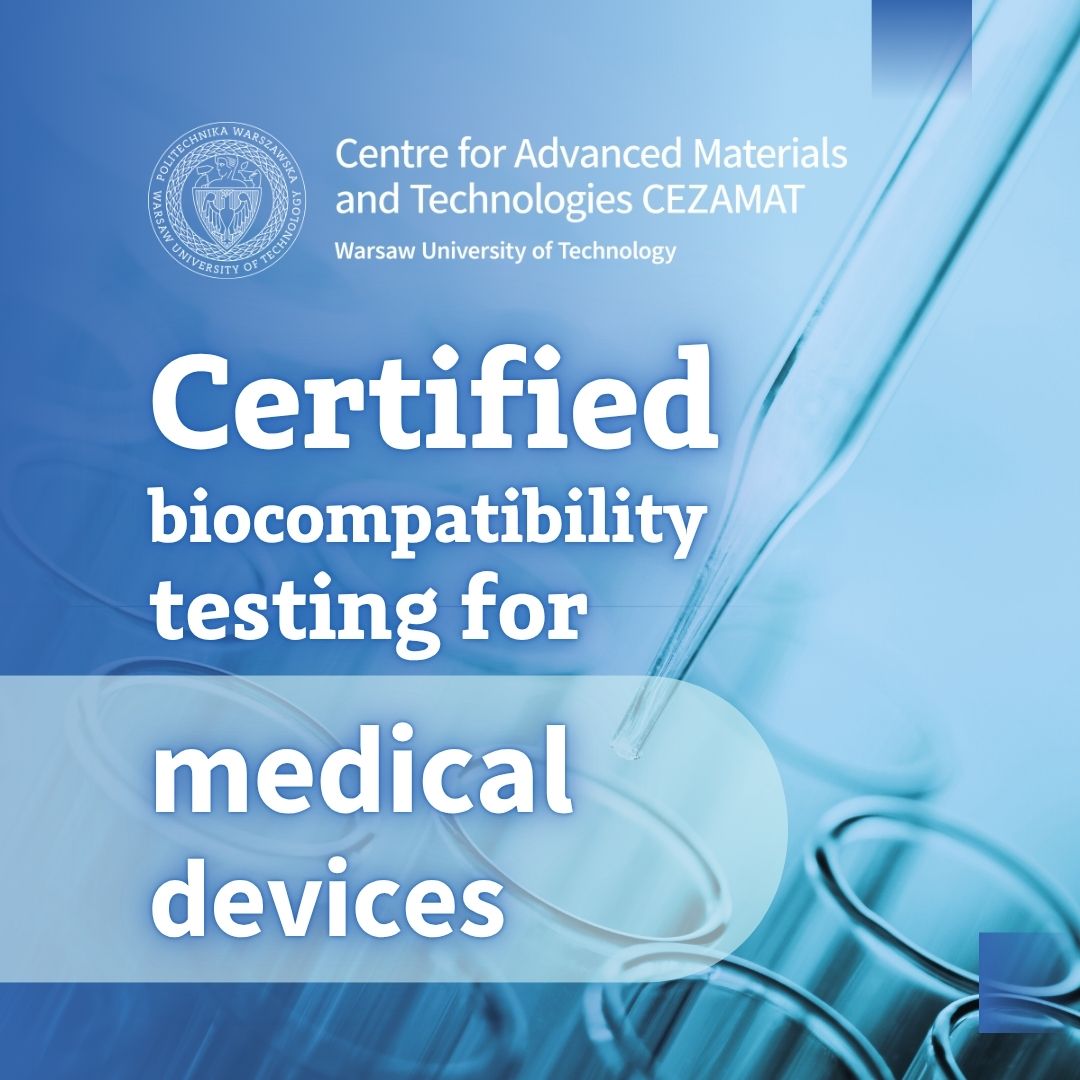Safe medical devices through biocompatibility testing at CEZAMAT
The Centre for Advanced Materials and Technologies – CEZAMAT provides specialised biological testing to assess the safety and biocompatibility of materials used in medical devices. With state-of-the-art laboratory facilities and a team of experienced specialists, we support manufacturers at every stage of product development and certification.
Why is biocompatibility testing crucial?
Every medical device that comes into contact with the human body must meet strict biological safety requirements. Biocompatibility evaluation helps detect potential risks of toxicity, inflammation, or other adverse effects early in the design and implementation phases of a new device.
What do we guarantee?
• Full compliance with PN-EN ISO/IEC 17025 and PN-EN ISO 10993-5 standards, ensuring that results meet internationally recognised certification and regulatory requirements.
• PCA accreditation (Polish Centre for Accreditation) No. AB 1912, confirming the reliability, credibility, and reproducibility of our procedures.
• An experienced team: all tests are conducted by our Microbiology, Molecular Genetics and Genomics Department, which has long-standing experience supporting the medical and biotech sectors.
• Transparent documentation: every report is clear, comprehensive, and ready for submission during the medical device certification process.
Scope of our services
Our offer includes:
• MTT cytotoxicity tests (in vitro) in accordance with PN-EN ISO 10993-5:2021.
• Assessment of material impact on human or animal cell viability.
• Metabolic activity analysis of cells, enabling precise determination of cytotoxicity levels.
Who do we work with?
Our services are designed for:
• Medical device manufacturers (MDR)
• Biotech and pharmaceutical companies
• Research and development institutions
• Medtech startups seeking confirmation of prototype safety
Get in touch
If you need certified support in biocompatibility assessment, contact our team. We will advise you on the best testing methods, prepare a clear testing plan, and deliver reports ready for use in regulatory procedures.
